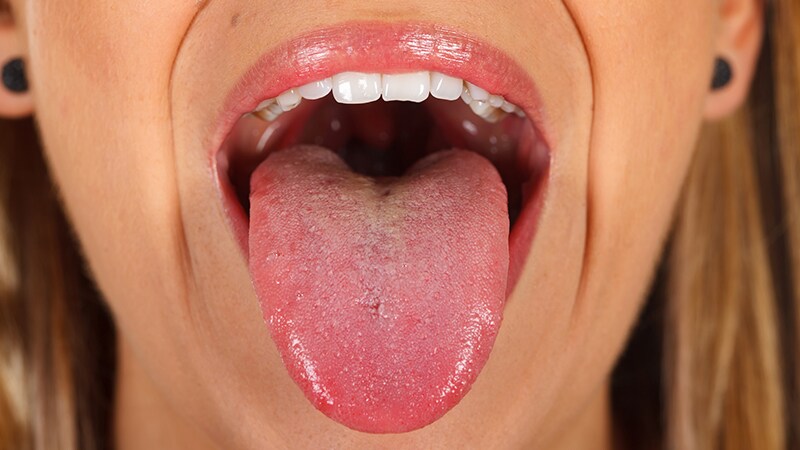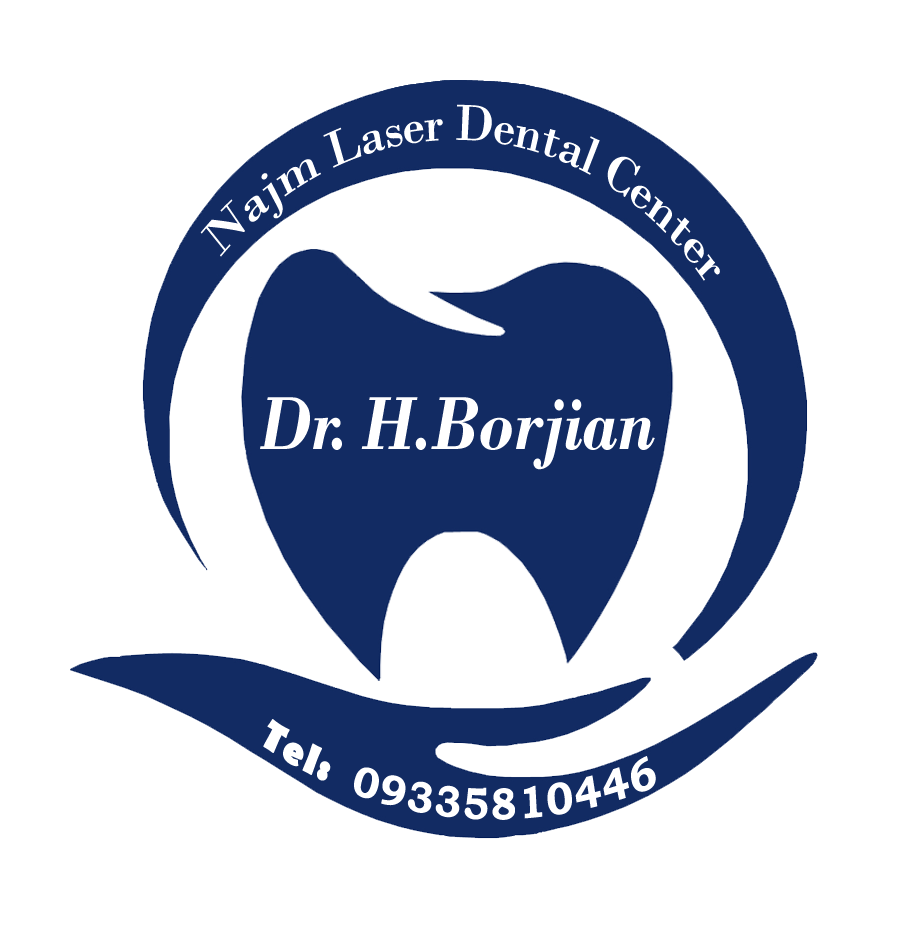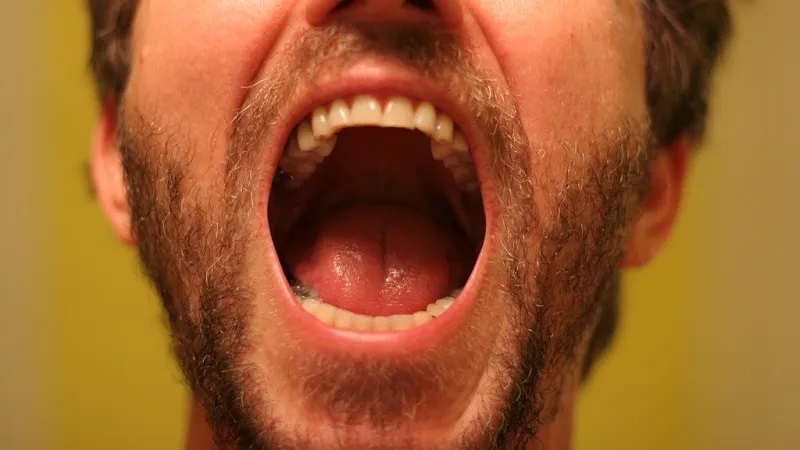Investigating the causes and symptoms of roof of mouth pain
If you tell your dentist, "Why does the roof of my mouth hurt," there aren't many diagnoses to screen you for.. That's because your palate is a hard bone covered by a relatively thin layer of mucus. In this article from Dr. Hossein Borjian's website The best implant in Isfahan We examine the causes and symptoms of roof of mouth pain.
Accordingly, the pain in the roof of the mouth is generally associated with other symptoms, and to better diagnose why the roof of your mouth hurts, you must take these symptoms seriously.. The roof of the mouth consists of a bony plate in front and a non-bony and soft part in the back. Together, these act as a barrier between the oral and nasal cavities. Sometimes the roof of the mouth may swell. Swelling on the roof of the mouth may be due to several potential causes, most of which are easily treated. In less common cases, swelling may be due to a more serious condition.
Symptoms associated with pain in the roof or palate
dry mouth
Dry mouth does not usually cause swelling of the roof of the mouth, but if dry mouth be severe. It can hurt the palate. If your mouth is dry, you may notice a burning sensation, difficulty eating or swallowing, or areas that are easily irritated due to a lack of saliva.. In turn, this condition can cause the roof of your mouth to sore or itch when eating.
Mouth sores or blisters
Blisters anywhere in the mouth can cause pain. If you say the roof of my mouth hurts, you may have blisters on your palate. Swelling of the roof of your mouth may be related to a virus, stress, or an immune problem. Common mouth blisters, sores, or other mouth sores are usually small but very painful (Because of the sensitivity of your mouth.) Because the tongue presses against the palate every time you swallow, it can make eating very painful.. In this situation you probably say "the roof of my mouth hurts".
muscle cramps
Do you have muscle cramps in addition to the pain in the roof of your mouth? Although there aren't necessarily any muscles in your palate or roof of your mouth that are causing it to sore, there may have been cases where the roof of your mouth is associated with muscle spasms caused by dehydration or electrolyte imbalance.. Common symptoms of dehydration include increased thirst, decreased urination, dark urine, dizziness, and increased heart rate.
The most common causes of pain or damage to the roof of the mouth
The most common reason that can lead to pain in the roof of the mouth is that the roof of your mouth is physically injured or damaged or burned.. In these conditions, there are usually symptoms such as sensitivity or moderate to severe pain in a certain part of the roof of your mouth. Eating hard foods or burning the mouth are the most common causes of damage to the mouth.
Oral burns on your palate can also occur if you smoke because of the heat and inhaled vapors (Regardless of whether you smoke) to occur. Cigarette burns cause a white area with tiny dots all over it. Try to avoid food or tongue contact with the injured area. Give it a few days to heal. If you smoke or use recreational inhalants, now is a good time to quit.

Mouth ulcers
Canker sores, canker sores, or similar mouth sores can cause pain or swelling in your palate. They can be caused by stress, environmental factors, or even viral in nature (such as herpes strains, which are known to cause "cold sores" or "fever blisters".
A mouth ulcer, such as a canker sore, can cause small, round, raw areas that are only a few millimeters wide. Usually they appear one by one, but some types of mouth ulcers can cause multiple blisters to flare up. Depending on the type of mouth sores you have, your dentist may recommend a "mouthwash," a topical medication, or simply giving it time to heal..
Taurus Palatine
"Tori" or "torus" are bony masses that appear on top of the normal anatomy of your mouth. In the case of the tori palatal, a bony extension (It is still covered by the gums) It is in the middle of the roof of your mouth.
The torus palatinus is asymptomatic, but usually irritates or hurts the area because it protrudes more than other areas of the mouth.. This condition can cause inflammation or swelling of the roof of the mouth. Some types of cleft palate are smooth and round or oval in the middle of their palate.
dehydration
If you are dehydrated, one of the symptoms you may experience is sensitivity, dry mouth, or pain in the roof of your mouth.. Dehydration, alcohol consumption, and electrolyte imbalances can cause a lack of fluid in the body, resulting in swelling of the roof or mouth.. If your dehydration is severe, seek emergency medical care and IV therapy.
Mucosal
A mucocele is a fluid-filled cyst filled with saliva, usually directly on or next to a salivary gland.. Obstruction of the salivary gland can lead to the creation of a "blister" filled with saliva in that area. Most mucoceles will burst, but large or chronic salivary glands may require treatment such as salivary stone removal..
The Instagram page of Dr. Hossein Borjian, the best implant in Isfahan
Oral cancer and other serious diseases
Although it's scary to think about, if the roof of your mouth seems swollen for no apparent reason, it's important to get screened for oral cancer by your dentist.. Oral cancer is one of the conditions for which the best treatment is early detection. Screening by a dentist or oral surgeon allows for the least invasive and most successful treatment protocol.
Squamous papillomas
Human papillomavirus (HPV) It is responsible for the formation of squamous papillomas. Squamous papillomas are non-cancerous lumps that can develop on the roof of the mouth. These lumps usually do not cause pain. However, once discovered and diagnosed, people should treat them. It is possible that the doctor will need surgery to remove the lump.
Electrolyte imbalance
Your body adjusts the levels of different fluids including saliva, blood and urine to different minerals (Electrolyte) needs. Problems like muscle cramps or dehydration are usually associated with spasms caused by electrolyte imbalances. Sometimes these symptoms can be felt in the roof of the mouth. Depending on the severity of your condition, your doctor may recommend that you hydrate with a sports drink or go to the emergency room to rehydrate your body..
Attention :
- The scientific accuracy of the above article should be consulted with Dr. Borjian, a specialist, in person Gum and bone grafting be confirmed.
- This article was managed and published by the site admin.
Read more :
Oral allergy syndrome treatments
Diagnosing the symptoms of tongue cancer
Wisdom tooth infection treatment methods



